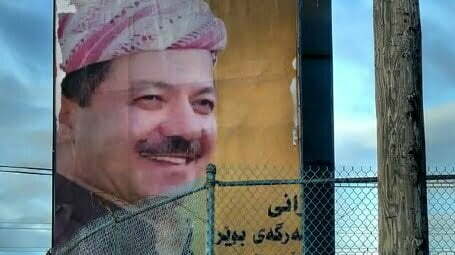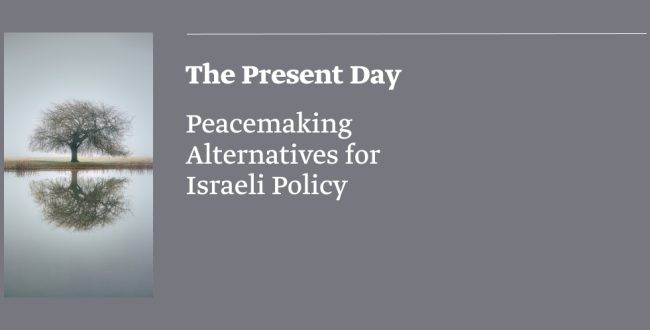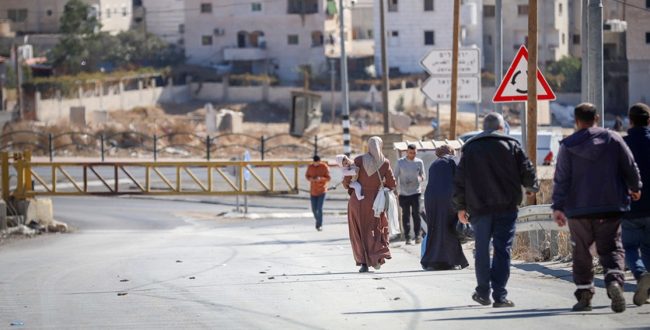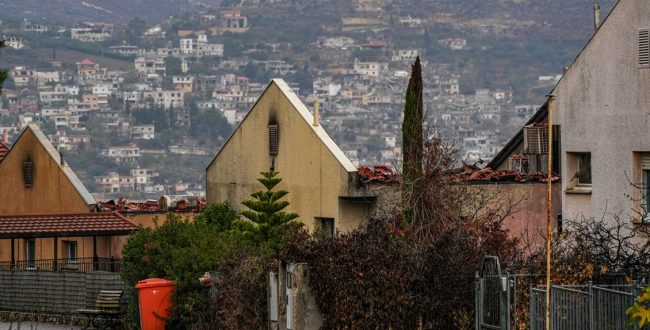The deployment of Kurdish forces in disputed provinces of Iraq appears to be a test of wills between Kurdistan's Regional Government and the Central government in Baghdad. It could escalate into a full-blown armed conflict but it should be seen mainly as a series of political maneuvers.
In the last two months, Iraq witnessed four large-scale maneuvers by the semi-autonomous Kurdistan Region's military inside disputed territories. After the Kurdish army (Peshmarga forces) initiated a month-long maneuver inside Kirkuk claiming to “protect it from sectarian violence”, on 18 August 2011 Kurdish TV aired a video of Kurdish forces entering Khaneqin, another city in the Diyala province. We know that a few days earlier the same army deployed large forces in Jalawla and Sa'diya, in the same province. Noticeably, the newly established Kurdish army was proud to broadcast a video of its armored units entering the city. Baghdad responded to these actions by deploying its own forces in the same area. It seems that both sides are waiting for the US Army to leave Iraqi politics to its own machinations.
The new Iraqi constitution calls for a referendum to determine whether the provinces of Kirkuk, Diyala, Salahaddin and Ninawe (Mosul) would be annexed to Iraq's Kurdistan region, or remain under the central government's control. Although a move towards “de-Arabization of disputed territories” has already been initiated by the Kurdish government in the north, Article 140 itself, which initiated the referendum, has not yet been applied and no referendum was undertaken. Furthermore, many Kurdish analysts anticipate that after US forces leave Iraq such a referendum's applicability will be highly controversial.
Several respected news agencies reported that both the central government and the Kurdish Regional Government are sharpening their swords in order achieve a solution for these areas where almost 5% of the world's oil reserves are. Local analysts even argue that another war over those territories is imminent in the aftermath of the US withdrawal.
I have no intention to argue whether 'ethnically' those areas belong to the Kurds or not. The question that seems to be more pertinent right now is: are these new moves really intended to push both sides into a new civil war? Since the Iraqi government needs Kurdish political backing to survive there may be indications that this is not the case and that there are other issues at play here. First, the Kurds are testing the limits of their maneuvering space within Iraqi politics. As Joe Holland, a US Army Colonel in Kirkuk asserted: “it takes a while to send an army into a city beyond the borders.” And hence the Kurdish army's actions are not a swift reaction to protect Kurdish citizens' against sudden sectarian violence, but rather plans prepared in advance to push into these territories.
This also has to do with Kurdish domestic politics. Since March 2011, Kurdish opposition groups began organizing popular protests against the existing Kurdish government. Although their main concerns were corruption and insufficient democratic reforms, nationalistic elements were also employed as part of their political discourse. Since then, rumors about an impending declaration of independence were leaked out of the government. Definitely, the historical Kurdish dream of independence is now used as a spin to shift public opinion away from the opposition's claims. In August more than a hundred NGOs organized a conference calling for an immediate declaration of independence. However, anybody who is familiar with Kurdistan's internal structure knows that none of the NGOs in Kurdistan are 'non-governmental'. Instead, NGOs are established by the government itself via low-ranking government officials, and all are financially supported by the state. Therefore it should be seen as a top-down propagation of ideas. On the other hand, disputed territories, especially Kirkuk, are seen as the key objective to be achieved before Kurdistan goes for independence. Hence such military maneuvers outside Kurdish borders are also used to keep the domestic opposition in check.
Yet, this internal jockeying cannot be the only reason. Particularly after its liberation in 2003, Iraq became a hot spot for Turkey and Iran in terms of preventing the Kurds from declaring independence. Although the US has never put itself in a position of keeping Turkey and Iran outside Iraqi borders, it succeeded in being the buffer between Kurds and Arabs. So while they know how far they can go as far as Turkey and Iran are concerned, Kurds still need to test Arab nerves in order to get prepared for the post-US Iraq. In sum, the KRG government is attempting to determine its own abilities and to push for a new status quo in Iraq while testing the limits of local opposition groups, Baghdad, Ankara and Tehran.
While the Kurdish government's move rests on popular support, stability and an economic boom, Baghdad and the rest of Iraq suffer from sectarian violence, uneasy political alliances, Shiite – Sunni disputes, Iranian influence and the impact of the Arab Spring. Nuri Al-Maliki's government simply needs Kurdistan's support to stay in power, and thus eight ministries of Baghdad are in hands of the Kurds alongside with a great number of Kurdish officials occupying posts in the central government. In its turn Baghdad has almost no influence on Kurdish politics. This allows the Kurds to undertake military deployments in Iraqi controlled cities with almost no reaction from the central government.
Both sides are now building their Maginot Lines, but the Kurds make bolder moves, knowing that Baghdad can take no actions against them. The Kurdish government shows its muscles to all parties inside and out, not only by undertaking so many military maneuvers far beyond its borders, but also by declaring that the regional government is the cement of the current government. It should be borne in mind that the current government of Iraq was established only once Massoud Barzani's, president of the Kurdish region, appealed for it after a long period of negotiations in 2010.
In my analysis, Kurdish independence in Iraq depends upon the dialectical relationship between the central and regional governments. That is to say, Kurdish independence has less to do with Kurdistan being land-locked, and more with its understanding that it calls the shots in Baghdad. Since 2003 Kurdistan developed the skills of conditioning Iraqi politics and will probably decide to squeeze this lemon until the very end. In other words, Kurdish independence will not come about in Iraq simply a result of changing international circumstances (or, as many commentators put it, Turkish and Iranian consent). It will possibly be put on the political agenda if and when Baghdad develops policies to block Kurdish border violations and unilateral actions. In my view this can only be achieved once Baghdad is left to its own devices in the aftermath of the US withdrawal.
For now, the Kurdish quasi-state is still able to control domestic public opinion in the region through propagating a vague promise for future independence, particularly using South Sudan as an example. This element, recently introduced into Kurdish political discourse, is still a useful tool for the government in terms of hindering a nationalist wave led by the opposition.
As David Romano, a well-known scholar in Middle East politics puts it: “the achievements of Kurdistan are much too valuable to risk by declaring independence.” Such pragmatism can still be the engine of Kurdish policies regarding self-determination. At this point the question is what will the Kurdish Regional Government do when its manipulative promises of independence are no longer effective in domestic politics? In my view the independence of Kurdistan in Iraq will only be an acute question after this point. Nevertheless, today we can clearly say that the notion of Kurdish independence has already begun its march in Iraq.
Ceng Sagnic is a freelance correspondent for Kurdish language newspapers and is writing an MA thesis at Ben Gurion University
















